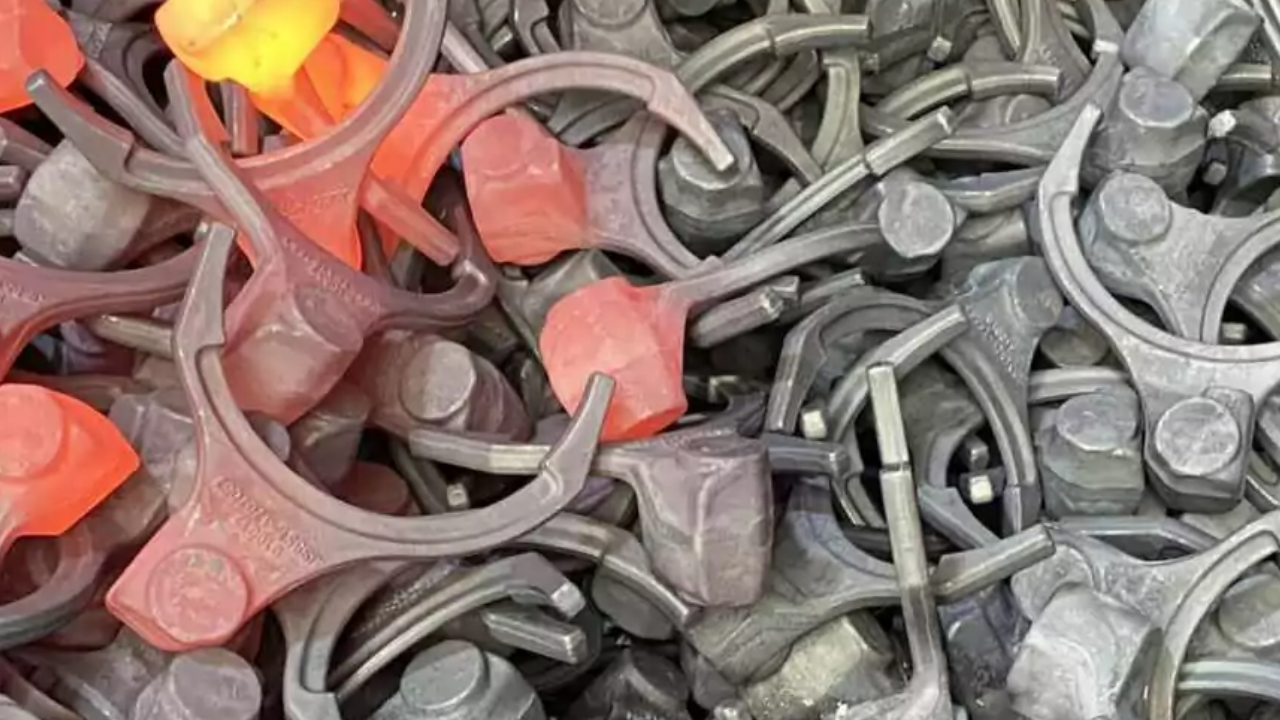Forging is an ancient metalworking technique employing compressive force to form heated metal into desired shapes. The primary goal of forging is to improve the material's mechanical properties, such as its strength, toughness, and structural integrity. A metal billet is frequently heated above its recrystallization point to promote plastic deformation. The material is molded using various methods, like hammering or pressing.
Forging can be divided into two categories: hot forging and cold forging. Hot forging works with metal at high temperatures, allowing for improved material flow and deformation. On the other hand, cold forging is done at or near room temperature and is appropriate for ductile materials under these conditions.
The choice between hot and cold forging is based on factors like the complexity of the final shape, desired component attributes, and material properties. Over its long history, the forging manufacturer has evolved into a complex and necessary manufacturing process, playing a crucial role in manufacturing components for many industries such as automotive, aerospace, energy, and general manufacturing.
Choosing the Right Forging Parts Manufacturer
Choosing the proper forging parts manufacturer is an important decision that directly impacts the quality, dependability, and performance of the components in your applications. Whether you work in automotive, aerospace, oil and gas, or any other industry that requires forged parts, selecting a manufacturer is critical. In this comprehensive guide, we will examine essential variables to assist you in efficiently navigating the process of choosing a forging parts manufacturer.
Industry Experience and Expertise
One of the most critical factors to evaluate is the manufacturer's industry experience and knowledge. Look for a manufacturer with a track record of creating forged parts for similar applications to yours. Over time, an experienced manufacturer is more likely to have refined its procedures, quality control methods, and problem-solving abilities.
Certification and Standards
Certifications and compliance with industry standards are essential signs of a manufacturer's dedication to quality. Check if the manufacturer has certifications such as ISO 9001 for general quality management, AS9100 for aerospace, or ISO/TS 16949 for automotive. These certifications reflect a dedication to meeting strict quality standards.
Facility and Technological Capabilities
It is critical to visit the manufacturing location or evaluate technological capabilities remotely. A sophisticated forging facility, heat treatment facilities, and advanced quality control procedures demonstrate a manufacturer's devotion to precision and efficiency.
Material Expertise
Different materials are required for various applications. Ascertain that the manufacturer has experience working with the materials relevant to your project. Whether it's steel, aluminum, titanium, or unusual alloys, the producer should be well-versed in each material's particular problems and requirements.
Customization Capabilities
Every application has specific needs, and an excellent forging parts manufacturer should be able to accommodate these. This includes the ability to design components with specified shapes, sizes, and material qualities based on your requirements. The manufacturer should take a collaborative approach to understanding and meeting your project's needs.
Quality Control Processes
In the production of forging parts, quality monitoring is critical. Inquire about the manufacturer's quality control systems, such as inspections, testing methodologies, and adherence to industry standards. A manufacturer with solid quality control procedures is more likely to supply consistently high-quality components.
Capacity and Lead Times
Examine the manufacturer's manufacturing capacity to guarantee that they can satisfy your quantity requirements. In addition, inquire about lead times to see how quickly they can supply the forged parts. Matching the manufacturer's manufacturing capabilities with your project schedule is critical.
Innovation and Continuous Improvement
A progressive manufacturer values innovation and constant improvement. Inquire about their commitment to establishing efficient procedures, embracing new technologies, and remaining current on industry changes. This positions the manufacturer to meet evolving industry norms and client expectations.
Cost Consideration
While price is an important consideration when selecting a forging parts manufacturer, it should not be the only one. A concentration on the cheapest option may jeopardize quality and dependability. Instead, strive for a mix of cost-effectiveness with the certainty of high-quality, precision-forged components.
Summary
When selecting the correct forging part manufacturer, a thorough review of variables ranging from industry expertise to technological capabilities is required. You may develop a connection with a manufacturer that meets and exceeds your expectations by completing thorough research and prioritizing quality over cost. The proper forging parts manufacturer is a crucial partner in your supply chain, contributing to your products' market success and dependability.


